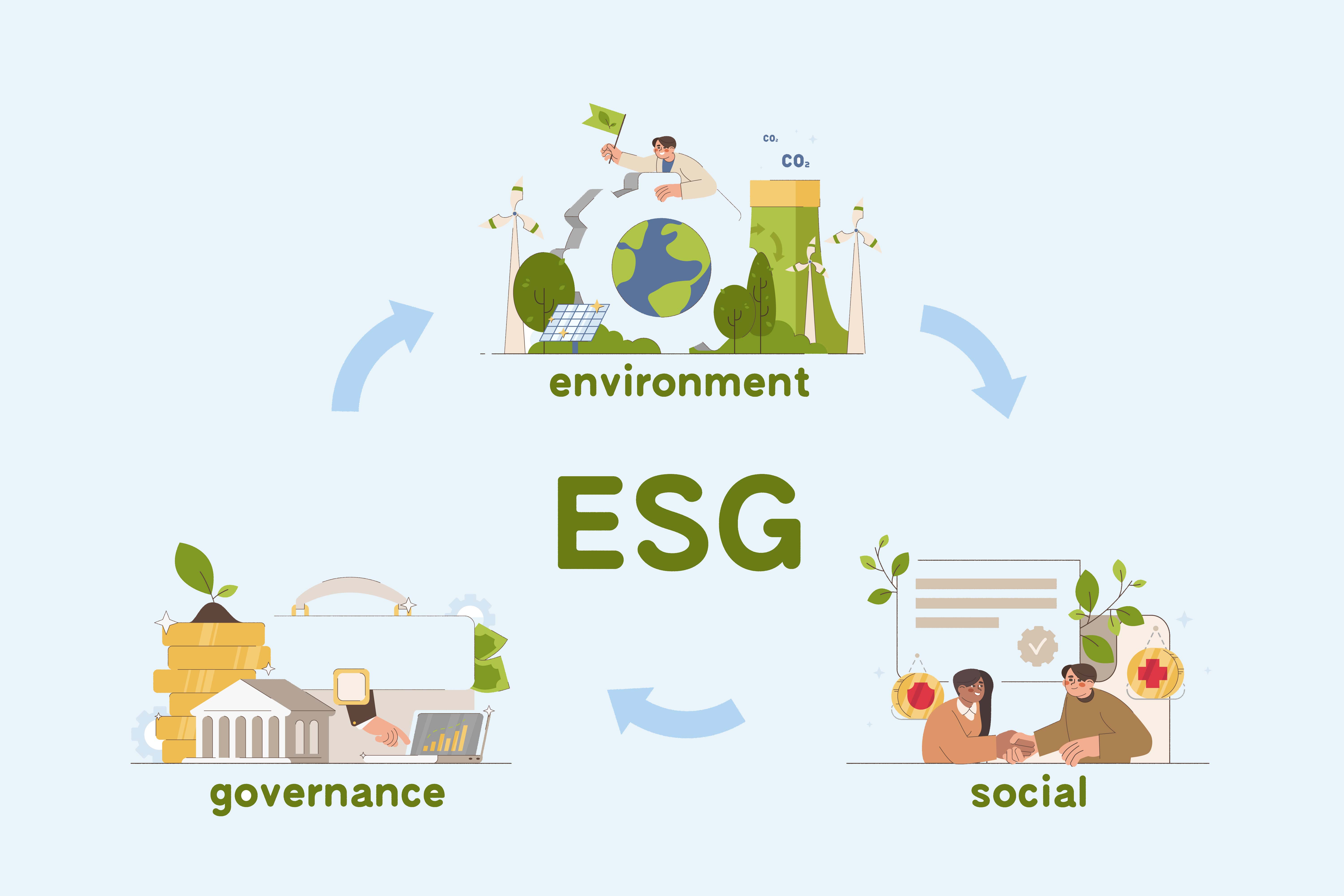About Sustainability
In 1987, the United Nations Brundtland Commission defined sustainability as "meeting the needs of the present without compromising the ability of future generations to meet their own needs". This definition pervades all sections of the society, including businesses which aim to thrive and offer their goods and/or services to the national and international markets. In doing so, every business faces stiff competition within the respective business segment, which can be converted into a winning situation by devising suitable procurement strategy. Sustainability is often quoted as three pillars viz. the economy, the society and the environment, which are otherwise simply known as profit, people and planet.

Sustainable Development Goals (SDGs)
The United Nations Organisation (UN) has set an agenda in the year 2015 with 17 sustainable development goals (SDGs) and 169 targets with a view to stimulate actions for achieving them by the year 2030, which are of importance to humanity and the entire planet as well. The agenda can be accessed through the link - The 2030 Agenda For Sustainable Development. The SDG vertical of NITI Aayog, India steers the development of India's national Multidimensional Poverty Index (MPI) and the reform action plan to reduce multidimensional poverty.
Environmental Social and Governance (ESG)
The whole set of Environmental Social and Governance (ESG) principles revolve around the concepts of profit, people and planet, which have gained higher priority in today's business. Currently, corporates are working to comply with ESG requirements and in future (by year 2030) may become mandatory for Micro Small and Medium Enterprises (MSMEs) in India as well. It is observed that India was the first country to make Corporate Social Responsibility (CSR) mandatory for a certain set of companies that are covered under Section-135 of Companies Act ( 2013) - The Gazette Of India
In today's dynamic business landscape, Environmental, Social, and Governance (ESG) factors are no longer just buzzwords but critical drivers of long-term success. At Sustain Sakura, we recognize the importance of ESG and are committed to helping businesses integrate ESG principles into their operations to achieve sustainable growth.
Businesses that adopt ESG practices are reaping significant benefits, including:
-
Enhanced Brand Reputation: ESG-conscious consumers and investors are increasingly favoring companies that demonstrate a commitment to sustainability.
-
Reduced Risk and Improved Resilience: ESG practices can help businesses mitigate risks, such as regulatory penalties and reputational damage, while also enhancing their ability to adapt to changing market demands.
-
Long-Term Financial Performance: Studies have shown that companies with strong ESG practices tend to outperform their peers financially over the long term.
Sustain Sakura's ESG Services
Sustain Sakura offers a comprehensive suite of ESG services tailored to the unique needs of businesses across various industries. Our services include:
-
ESG Assessment and Strategy Development: We help businesses evaluate their current ESG performance and develop a strategic plan to align their operations with ESG best practices.
-
ESG Reporting and Disclosure: We assist businesses in preparing accurate and transparent ESG reports that comply with relevant regulations and stakeholder expectations.
-
ESG Training and Awareness: We provide customized training programs to educate employees about ESG principles and their role in achieving sustainable business practices.
-
ESG Supply Chain Management: We help businesses assess and manage the ESG risks associated with their supply chains, ensuring ethical and sustainable sourcing practices.


Green Procurement
Indian corporates have been issuing guidelines to their suppliers to adopt environmental management throughout the entire supply chain. These guidelines aim to minimise the environmental impact by procuring materials, parts, consumable and other goods from suppliers that demonstrate desired environmental performance. Accordingly, companies and their suppliers must develop products with little environmental impact during the production process, during the use of the product and at the time of disposal, in order to achieve “Green Procurement” goals.
What is Green Procurement?
Green procurement, also known as sustainable procurement or environmentally responsible purchasing, is the process of integrating environmental considerations into purchasing decisions. This involves evaluating the environmental impact of products, services, and suppliers throughout their lifecycle, from raw material extraction to production, transportation, use, and end-of-life disposal.
Why is Green Procurement Important?
Businesses that adopt green procurement practices can reap numerous benefits, including:
-
Reduced Environmental Impact: By sourcing environmentally friendly products and services, businesses can minimize their carbon footprint, conserve resources, and reduce their contribution to environmental pollution.
-
Enhanced Brand Reputation: Consumers increasingly favor businesses that demonstrate a commitment to sustainability. Green procurement practices can strengthen a company's brand reputation and attract environmentally conscious customers.
-
Cost Savings: Green products and services often have a lower long-term cost due to reduced environmental impact and increased energy efficiency.
-
Improved Supply Chain Resilience: Green procurement can enhance supply chain resilience by identifying and mitigating environmental risks associated with suppliers.
Sustain Sakura's Green Procurement Services
Sustain Sakura offers comprehensive green procurement services tailored to the specific needs of businesses across various industries. Our services include:
-
Green Procurement Policy Development: We help businesses develop and implement a customized green procurement policy that aligns with their overall sustainability goals and industry best practices.
-
Supplier Evaluation and Selection: We assist businesses in evaluating suppliers based on their environmental performance, social responsibility practices, and ethical sourcing practices.
-
Life Cycle Assessment (LCA): We conduct LCA studies to assess the environmental impact of products and services throughout their lifecycle, providing valuable insights for informed purchasing decisions.
-
Green Product Identification: We help businesses identify and source environmentally preferable products and services that meet their specific requirements and sustainability goals.
-
Supplier Training and Engagement: We provide training and engagement programs to educate suppliers about green procurement practices and encourage their adoption of sustainable practices.
Impact on MSMEs
Micro, Small, and Medium-Sized Enterprises (MSMEs) play a crucial role in the Indian economy, contributing significantly to employment, growth, and innovation. However, many MSMEs face challenges in adopting ESG practices due to limited resources, awareness, and expertise. Sustain Sakura, an ESG consulting firm in Chennai, is committed to empowering MSMEs to embrace ESG principles and reap the associated benefits mentioned below.
Enhancing Sustainability and Reducing Costs
Sustain Sakura's ESG services help MSMEs identify and implement cost-effective measures to minimize their environmental impact, such as energy efficiency upgrades, waste reduction strategies, and sustainable sourcing practices. These measures not only contribute to environmental sustainability but also lead to long-term cost savings for MSMEs.
Strengthening Brand Reputation and Attracting Customers
Consumer preferences are increasingly shifting towards businesses with strong ESG credentials. By adopting ESG practices and transparently communicating their sustainability efforts, MSMEs can enhance their brand reputation and attract more customers who value sustainability and ethical practices.
Improving Operational Efficiency and Employee Well-being
ESG principles extend beyond environmental protection to encompass social and governance aspects. Sustain Sakura's ESG services assist MSMEs in creating a healthy and supportive work environment for their employees, promoting diversity and inclusion, and upholding ethical business practices. These efforts can lead to improved employee satisfaction, productivity, and retention.
Accessing Financial Opportunities and Enhancing Investor Confidence
ESG performance is becoming a critical factor in investment decisions. By adopting ESG practices and demonstrating their commitment to sustainability, MSMEs can attract ESG-focused investors and gain access to new financing opportunities. This can fuel their growth and expansion plans.
_1683804964.png)
